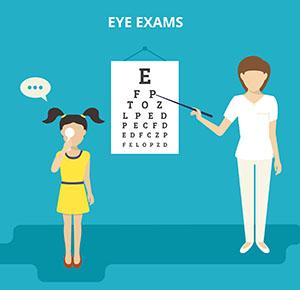Eschenbach Optik of America, Inc. “Low Vision Rehab is the Standard of Care – AAO Video”. Youtube, 24, April, 2018. www.youtube.com/watch?v=EXANF28nd-E

Low vision is the portion of Vision rehabilitation for patients who cannot see 20/40 or better.
Low Vision Rehabilitation Eye Care Orlando, Lake Nona, Kissimmee & Winter Park, FL
Low vision is the portion of Vision rehabilitation for patients who cannot see 20/40 or better. And deals with examining and rehabilitating your vision using reading glasses, magnifiers, telescopes, telemicroscopes and more.
Often, the retina, the back layer of our eyes that is responsible for receiving and absorbing light to send to the brain for image processing is damaged, causing the reduced vision.
When diseases of the retina are present it can often cause permanent and irreversible vision loss. Conditions present at birth tend to be stable, where as acquired conditions may be unstable in the early stages and must be treated and monitored as directed by Eye Care Specialists.
Different conditions can cause retina diseases. The conditions are generally classified as congenital (genetic hereditary, born with) or acquired (age related, injury, infection, etc.).
Common congenital conditions include: oculocutaneous albinism, retinopathy of prematurity, nystagmus, amblyopia (eye turn, lazy eye) and more.
Common acquired conditions include: glaucoma, macular degeneration, cataracts, Stardgardt’s and more.
The goal of low vision is to rehab vision using reading glasses, magnifiers, telescopes and more to regain reading, computer and driving ability.
Introducing the SmartLux
What is Macular Degeneration
We have partnered with Eschenbach Optik and Ocutech to provide our patients the highest quality products / tools available on the market!
Vision loss is scary… I just wanted to provide patients some guidance during a difficult transition.

I completed a comprehensive vision rehabilitation program at the University of Houston – Center for Sight Enhancement. I learned and provided care to children, young adults and adults and helped patients with ocular cutaneous albinism, myopia degeneration, optic atrophy, stargardt’s, macula degeneration, glaucoma, diabetic retinopathy and more.
When an individual loses vision or in the process of losing vision, you feel scared, alone and worried about your loss of independence. It is crucial to continue your eye health care with your current Eye Care Specialist (Opthalmologist – retina, glaucoma, cataract specialist, or Optometrist) as directed. Low vision care will evaluate your vision & visual function and help you regain tasks that you have lost or improve your efficiency.
Most of my patients average at least 2 to 3 visits. During these visits, we will test and retest your vision, check and recheck your glasses prescription, spend time introducing optical and electronic magnifiers, telescopes, telemicroscopes that may help you with reading books, documents, bills, the bible, computer screens, TV captions and possibly driving.
Catch the signs early on
Many people have reported vision is their most important sense. In this day and age, many of our tasks and activities (such as using the computer, phone, reading books, watching movies and sports) of daily living are very dependent on vision. In fact, according to the U.S. National Health and Aging Trends Study, older adults with impaired vision are more likely to have symptoms of anxiety and depression. This is why, early referrals and education is vital to increasing quality of life for older adults. For young children with low vision (vision impairment), early referrals and education allows the child more time to learn & adapt to low vision aids and devices as the early school grade levels have lower visual demands. Contrary to normal belief, low vision aids and devices decreases “standing out”, bullying and more. There are multiple signs for Low Vision / Visual Impairment and includes:- Squinting to see at distances and near (up-close)
- Glasses are not strong enough
- Fluctuating vision
- Poor or blind vision (blindness)
- Having difficulty seeing the board from the back of the classroom
- Frequent headaches
- Constantly rubbing the eyes
- Extreme sensitivity to light
- Poor focusing
- Difficulty reading (bible, medicine labels, restaurant menus)
- Sitting too close to the TV
- Bump into objects while walking

